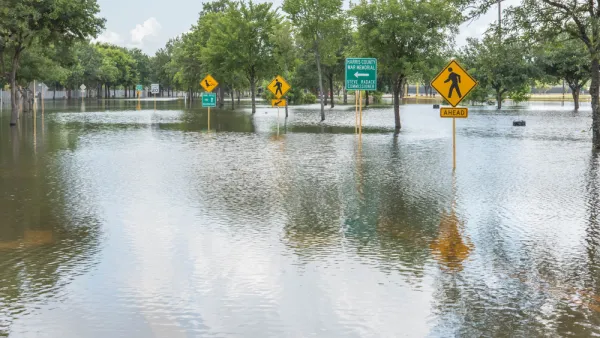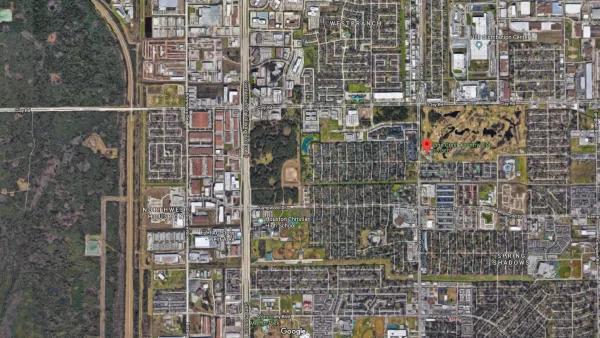A new Flood Resilience Trust will create a permanent source of funding for flood control purposes, but the county still faces a shortfall for planned projects.

Harris County, Texas, home to Houston, "will unveil a new plan to address a funding gap for its flood bond program, which will rely more heavily on diverted toll road revenue instead of federal aid that may never arrive." The county's Commissioners Court also plans to "approve a new, permanent fund for flood control purposes and give priority to the most vulnerable areas to receive aid from it." The plan also comes on the heels of analysis that shows a disparity in funding: ""In March, the county announced that some of the watersheds with the wealthiest communities, such as White Oak and Buffalo bayous, had their projects close to fully funded." Meanwhile, "[w]atersheds with some of the county’s poorest neighborhoods, such as Halls and Greens bayous, had less than half the necessary dollars," reports Zach Despart in the Houston Chronicle.
"The revised strategy sprang from county officials’ realization this year that the original bond plan is not working. Voters in 2018 passed the $2.5 billion bond, though the county planned about $5 billion in mitigation projects — such as detention basins, buyouts and channel improvements — while anticipating federal matching dollars would pay for the rest." The new fund, known as the Flood Resilience Trust, "would direct Harris County Toll Road Authority revenue — a lump sum of $230 million plus $40 million annually — to a new Flood Resilience Trust. This account would be used to plug funding holes in projects where federal aid failed to arrive." But as Despart writes, "[t]he plan still leaves approved projects $950 million short, however, raising the possibility that a new bond or flood control tax increases may be needed in the future to pay for all planned projects, according to budget office documents."
FULL STORY: Harris County plans to use toll road money fixes flood bond funding problem - for now

Analysis: Cybertruck Fatality Rate Far Exceeds That of Ford Pinto
The Tesla Cybertruck was recalled seven times last year.

National Parks Layoffs Will Cause Communities to Lose Billions
Thousands of essential park workers were laid off this week, just before the busy spring break season.

Retro-silient?: America’s First “Eco-burb,” The Woodlands Turns 50
A master-planned community north of Houston offers lessons on green infrastructure and resilient design, but falls short of its founder’s lofty affordability and walkability goals.

Test News Post 1
This is a summary

Analysis: Cybertruck Fatality Rate Far Exceeds That of Ford Pinto
The Tesla Cybertruck was recalled seven times last year.

Test News Headline 46
Test for the image on the front page.
Urban Design for Planners 1: Software Tools
This six-course series explores essential urban design concepts using open source software and equips planners with the tools they need to participate fully in the urban design process.
Planning for Universal Design
Learn the tools for implementing Universal Design in planning regulations.
EMC Planning Group, Inc.
Planetizen
Planetizen
Mpact (formerly Rail~Volution)
Great Falls Development Authority, Inc.
HUDs Office of Policy Development and Research
NYU Wagner Graduate School of Public Service




























